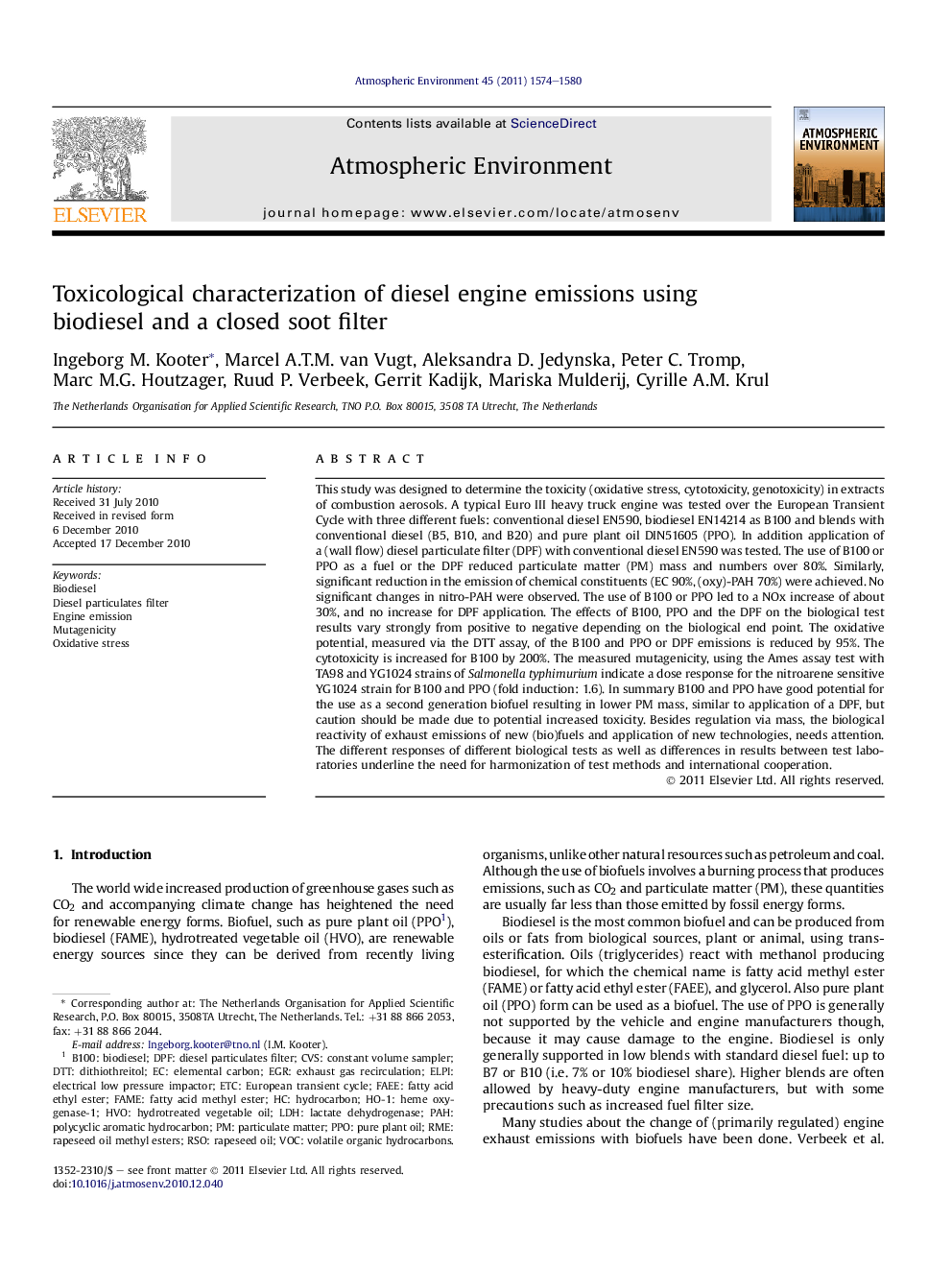| Article ID | Journal | Published Year | Pages | File Type |
|---|---|---|---|---|
| 4440057 | Atmospheric Environment | 2011 | 7 Pages |
This study was designed to determine the toxicity (oxidative stress, cytotoxicity, genotoxicity) in extracts of combustion aerosols. A typical Euro III heavy truck engine was tested over the European Transient Cycle with three different fuels: conventional diesel EN590, biodiesel EN14214 as B100 and blends with conventional diesel (B5, B10, and B20) and pure plant oil DIN51605 (PPO). In addition application of a (wall flow) diesel particulate filter (DPF) with conventional diesel EN590 was tested. The use of B100 or PPO as a fuel or the DPF reduced particulate matter (PM) mass and numbers over 80%. Similarly, significant reduction in the emission of chemical constituents (EC 90%, (oxy)-PAH 70%) were achieved. No significant changes in nitro-PAH were observed. The use of B100 or PPO led to a NOx increase of about 30%, and no increase for DPF application. The effects of B100, PPO and the DPF on the biological test results vary strongly from positive to negative depending on the biological end point. The oxidative potential, measured via the DTT assay, of the B100 and PPO or DPF emissions is reduced by 95%. The cytotoxicity is increased for B100 by 200%. The measured mutagenicity, using the Ames assay test with TA98 and YG1024 strains of Salmonella typhimurium indicate a dose response for the nitroarene sensitive YG1024 strain for B100 and PPO (fold induction: 1.6). In summary B100 and PPO have good potential for the use as a second generation biofuel resulting in lower PM mass, similar to application of a DPF, but caution should be made due to potential increased toxicity. Besides regulation via mass, the biological reactivity of exhaust emissions of new (bio)fuels and application of new technologies, needs attention. The different responses of different biological tests as well as differences in results between test laboratories underline the need for harmonization of test methods and international cooperation.
Research highlights► The use of B100 or PPO fuels reduces PM mass and numbers over 80%. ► The effects of B100 and PPO on the biological test results vary from positive to negative. ► The biological reactivity of exhaust emissions of new (bio)fuels needs attention.
